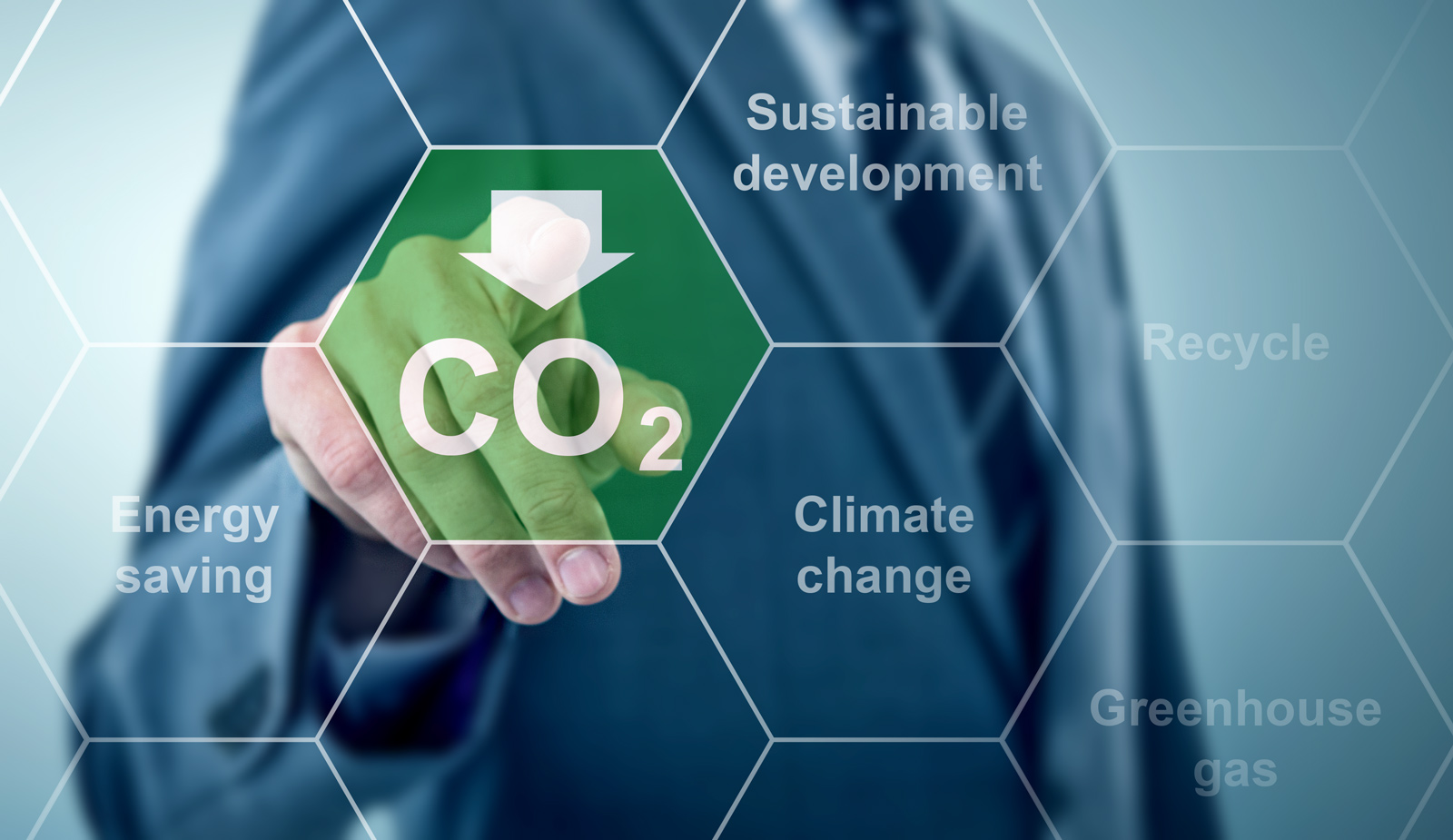CO2 EMISSIONS’ REDUCTION: IMPROVEMENT OF HUMAN AND ENVIRONMENTAL HEALTH
Carbon dioxide (CO2) is a natural component of the air we breathe; it is a colorless, odorless and non-flammable gas produced by metabolic processes (such as respiration) and by the combustion of fossil fuels.
It is useful for the growth of plants and for the production of food that we find on our tables every day but in high concentrations it represents a risk for the human being, the natural environment that surrounds us and the plants themselves.
It is now known that CO2 is a greenhouse gas responsible for global warming; in high concentrations the gas jeopardizes the ozone layer present in the atmosphere that protects the earth from the harmful action of ultraviolet UV-C rays and is responsible for the formation of a "hood" that prevents the expulsion of the heat absorbed by the earth during the day.
This is why in recent years when we expose ourselves to the sun we risk getting burned.
A high increase in CO2 causes acidification of the blood with a compensatory increase in the frequency and depth of breathing. After prolonged exposure to high levels, acid-base regulation can occur through renal mechanisms that can influence the metabolism of calcium in the bones. In addition, headaches, dizziness, irritation of the mucous membranes, difficulty in concentrating may occur.

In industrialized countries, most of the electricity is produced using fossil fuels, this involves the production of large quantities of carbon dioxide.

High CO2 levels, as already mentioned above, not only affect the ecosystem but also the foods that we have on our tables every day.
A recent study conducted by Harvard T.H. The Chan School of Public Health in Boston and the Harvard University Center for the Environment in Cambridge states that high CO2 emissions cause the reduction of important nutrientssuch as iron, zinc and proteins in some foods with consequences on people's health.
The study estimated that by 2050, 175 million people will be zinc deficient and 122 million will be protein deficient worldwide.
This phenomenon can lead to the weakening of the immune defenses and an increase in the risk of the formation of major diseases such as diabetes, heart disease and stroke.
The United Nations Organization (UN) in the goals of the 2030-2050 agenda underline the importance of CO2 emissions reduction.

The air handling units and rooftops are the components of the building that have the greatest impact on energy consumption and the production of waste that is harmful to the environment. The adoption of an obsolete filtration system only increases their impact.
The choice of a cutting-edge filter media is essential.
The active electronic filters of Expansion Electronic represent the most valid alternative for the reduction of CO2 emissions and to stay in line with the new international goals.
The FE/FEL SYSTEM filters in a single product are able to guarantee an almost total elimination of waste production(built with regenerable and recyclable materials) and with their low and constant pressure drops they guarantee a high and constant energy saving.
The FE/FEL SYSTEM can be implemented in new and existing systems thanks to the ASHARAE standard dimensions and their adaptability.
The estimated energy saving with the mere replacement of the obsolete filter media with Expansion Electronic filters is around 30%.
In retrofit projects in which the customer proceeds with the upgrade of the fan unit and with the optimization of the operating cycle, energy savings can even reach 80%.





